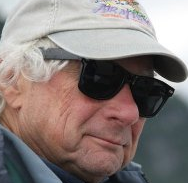Lessons for The U.S. In Indonesia's Elections
By Joe Rothstein
Editor, EINNEWS.com
So how ‘bout those Indonesians, quite an election, huh?
Oh, excuse me. You didn’t know that Indonesia had an election? That’s understandable. It wasn’t in the U.S. media. Why should it have been? There were no riots. No burning flags. Few claims of voting fraud. None of the stuff that makes news. Just 130 million or so who took the time to mark paper ballots in an act of political self-determination.
Nevertheless, the Indonesian elections are worthy of our attention. For one thing, to conduct a nationwide election in Indonesia is a monumentally difficult management operation. Indonesians live on 6,000 islands and speak 700 languages.
For another thing, Indonesia is by far the world’s largest Muslim country. A 2010 Pew report estimates that 88 per cent of Indonesia’s 205 million people are Muslim.
For comparison, Turkey, another Muslim country that holds relatively free elections, has 75 million people. Afghanistan, where so much attention is focused these days, and which just held a difficult election of its own, has about 30 million.
What’s happening in much of the Muslim world provides ample reason to push back against the siege mentality that seems to be driving much U.S. policy.
It is borderline psychotic to fear that the U.S. or any of its states would replace our 225-year old system of justice with sharia law. Yet seven states have felt the threat so imminent that they’ve outlawed it.
U.S. courts routinely have tried many terrorists, foreign and domestic, without triggering violence, yet Congress acts as if moving bad actors from Guantanamo to federal courts is tantamount to inviting death and destruction to our city streets.
In 2001 we spent about $1.5 billion protecting our borders with Mexico and Canada. Now we spend $3.5 billion, yet we continue to hear, relentlessly, that the borders must be “protected.” It’s the first line of argument from those who refuse to deal with the nation’s acute immigration problems.
Right wing radio and web sites are awash with fantasies that the Muslim Brotherhood is infiltrating the U.S. government. Michele Bachmann and a clutch of other members of Congress have even written to the Inspector General of the Justice Department demanding an investigation.
Do you hear echoes of the “we’re fighting them over there so we won’t have to fight them over here” nonsense used to justify the U.S. invasion of Iraq? Who really believes our beaches will disembark masses of suicide bombers screaming “God Is Great,” if we are not on 24-hour alert?
The U.S. was caught off guard with 9/11. Much has been accomplished since to reduce the chance it will happen again, and on such a destructive scale. But in our diverse and complicated world, no amount of security can render us completely safe from murderous zealots. This year’s Boston Marathon anniversary can attest to that.
But isolated events, no matter how deadly, do not constitute an invasion. We are not in an apocalyptic struggle between western ideas of democracy and a resurgent Islam. Far from it. What’s REALLY happening in the Muslim world was best summarized by New York Times columnist Tom Friedman in a column published last July. Friedman said:
“I have visited both Turkey and Egypt in the past few weeks and here is what I’ve seen: I’ve seen a rebellion of the non-Islamist center and army in Egypt against the Islamist Muslim Brotherhood. I’ve seen a rebellion of the secular, urbanized youth in Turkey against the Islamist Justice and Development Party there. I’ve seen an Iranian election where Iranian voters who were only allowed to choose between six candidates pre-approved by Iran’s clerical leadership quickly identify which of the six was the most moderate, Hassan Rowhani, and overwhelmingly vote for him.
“And I’ve seen the Islamist Ennahda party in Tunisia forced by voters there to compromise with two secular center-left parties in writing a constitution that is broad based and not overly tilted toward Sharia law. And just a year ago in Libya, I saw a coalition led by a Western-educated political scientist beat its Islamist rivals in Libya’s first free and fair election.”
Now let’s add Indonesia to Friedman’s list. The world’s largest nation just gave about 70 per cent of its votes to non-Islamic political parties, a percentage just about in line with the nation’s last election results and a sharp decline of Islamic party support from earlier voting.
When Indonesians vote again in July most observers expect that nation's new president to be the current governor of Jakarta, Joko Widodo, a charismatic secular figure known as “Jokowi” who’s style and background is often compared with Barack Obama.
That should be unsettling to those who consider President Obama himself to be a domestic terrorist planted on our shores decades ago with a fake birth certificate and a secret plan to turn the U.S. into an Arabian Nights type of caliphate.
Personally, I don’t worry about that. I just marvel that Indonesia, with its 6,000 island population, its 700 languages, and its relatively brief history as a democratic nation can conduct elections so peacefully that few outside the country ever hear about it.
(Joe Rothstein can be contacted at joe@einnews.com)




